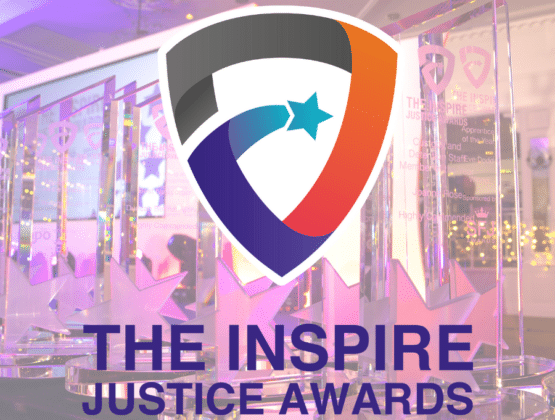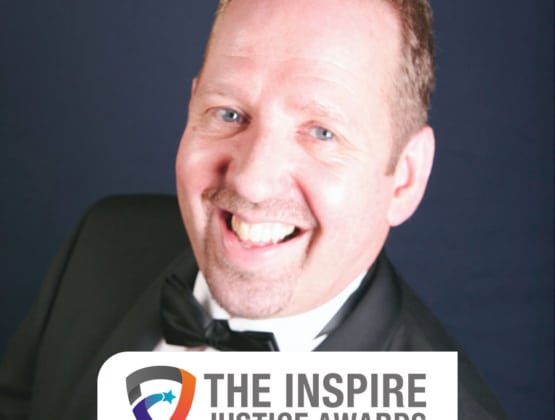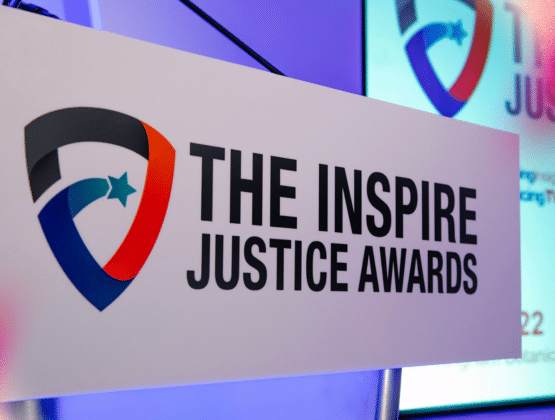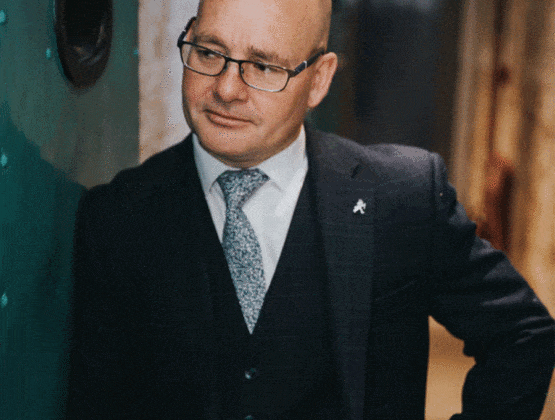Published by Skills for Justice
Q&A with Danny Wolstencroft and Mike Hurst, Co-Founders, Lads Like Us
Date 19.10.23
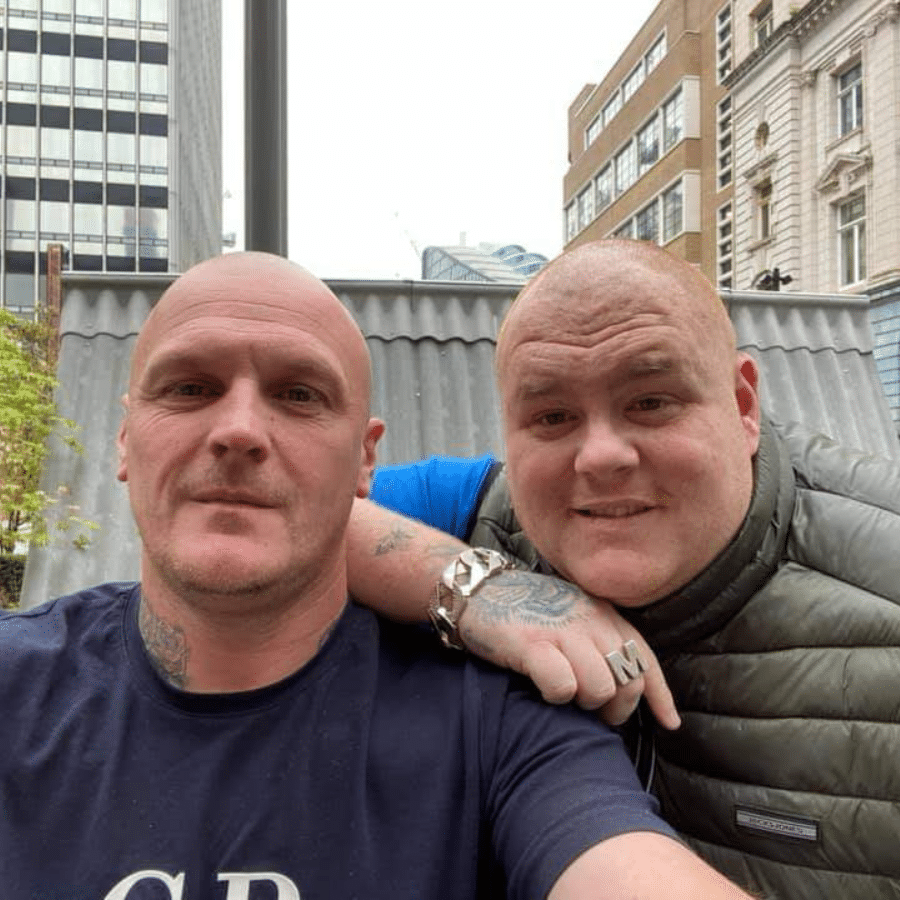
Danny Wolstencroft and Mike Hurst are Co-Founders of Lads Like Us – a social enterprise born to encourage boys and men to speak out about childhood trauma and adverse childhood experiences. Their mission is to help individuals claim back their lives and stop the vicious cycle of self-sabotage and damage caused to society when undealt with trauma plays out.
Ahead of their keynote address, Danny and Mike spoke to us about their lived experiences of the criminal justice system and the importance of trauma in the rehabilitation of offenders.
Tell us a bit about yourselves and where the idea for Lads Like Us came from?
Mike: It was July 2021. We had both reached a point in our carnage, chaos and pain that we were living in, whereby we came to a point of acceptance. An acceptance that there was nothing that we could do to change what had happened to us as children, and we started Lads Like Us off the back of that. It was almost like an epiphany, like a weight was lifted off our shoulders, because we’ve been carrying the guilt and shame of other people’s actions for so long.
As a child I disclosed to my school that I had been abused, and instead of them sending a social worker to speak to me, they sent me home with my abuser. I was living in chaos and stuck in victim mode for many, many years after that. I later came to learn that this is why I displayed frustrating behaviours throughout my young and then adult life. I was hungry. Shouting and screaming at professionals to get them to understand my situation, but they just thought I was crazy, a lost cause.
Having come out the other side, Danny and I saw that the only one option was to try and change the view of professionals (such as police, prisons and probation) to help them to understand people like me and Danny and why we behaved like we did.
That’s when we decided to set up Lads Like Us.
Lads Like Us’ key objective is to encourage police, prisons, probation and more to adopt a ‘trauma-informed’ approach when interacting with service users. Why do you think this is crucial to better understanding offending behaviours?
Mike: When the abuse was happening to me, I thought it was all my fault, so I started carrying loads of guilt and shame. That came out in my behaviour at school, and nobody asked me why. I started building up a brick wall around me and the longer time went on the higher the brick wall got. It became harder and harder to get through to me and by the time I was 15 or 16, the brick wall was so high you’re not getting in.
Danny: The estates where we’re from, people don’t speak out about this kind of stuff. There’s a massive stigma around men and lads speaking about it, and more often than not this fear and trauma manifests itself in toxic masculinity and criminality. It led us down a path of drug dealing, crime and all kinds of nasty behaviours.
With Mike and I having been through recovery and not living in that chaos anymore, we decided that we wanted to pay it forward.
We wanted to take all the bad stuff that has happened and turn it into something positive, so we came up with a training session called ‘Million Pieces’. It’s called Million Pieces because we wanted to get the message across to professionals that we won’t break into a million pieces if you ask us questions. We feel that many are simply too afraid to ask questions about what we’ve experienced and whether we had experienced any trauma when we were little. By taking a trauma-informed approach professionals will come to see why this person keeps presenting at prison, on probation, in rehab and at mental health units. Only once you understand that, then a solution can be found and people can get their lives back on track.
We’re not making excuses for our behaviour, what we’re asking is that people try to find out why and make targeted interventions at an early stage so that we’ve got no more little Mikes and little Dannys running around.
You’ve trained 16,000 people working in youth justice and the criminal justice system in just over two years. It seems like your message is really beginning to resonate with people?
Mike: We had no idea what we were about to start and that we’d still be on this journey two years later. It’s been incredible.
Danny: Before we started Lads Like Us, we both had long hair. We used to look like Mick Hucknall (lead singer of Simply Red). Now look at us *points to hairline*. In all seriousness though, we now have a seat at the table with professionals and we are treated as equals. It’s not just a token gesture. They’re truly listening to us and we’re starting to make a positive change.
The trauma you suffered as children went largely undetected and unresolved for many years. You are both in your 30s and 40s respectively. From what I gather, it seems that it is only relatively recently that your message has begun to be taken seriously. It therefore begs the question: why now?
Danny: We’ve been banging on about this stuff for years. The sad thing is that talking about trauma, talking about sexual abuse, talking about exploitation didn’t make a difference until it became ‘sexy’ amongst professionals. We had to wait for the professionals to give us permission to speak, and I think that’s because there’s now more understanding of childhood trauma, county lines and exploitation, that sort of thing.
He *points at Mike* was involved in county lines, but when he was young people thought he was a little sh*t, a criminal. People are coming to realise that trauma is what lies behind it all.
Mike: You can’t escape it at the moment, which is why people are paying attention. You see it in the media, on Netflix, it’s a real big problem, but locking people up alone is not going to solve it.
How do you feel today working with and advising groups of professionals who you feel didn’t listen to you in the past? How do you square that with yourselves? Did you feel some sort of animosity or have your guard up a little bit when you first encountered people in this sort of capacity?
Danny: I didn’t. My whole thought process is that these people aren’t responsible for what happened in the past. The older professionals, many of them are retired now and there just wasn’t the awareness and understanding that there is today.
We can’t do anything to change the past, but we can do something to change the future.
Mike: I’ll be honest, I had no respect for professionals whatsoever at first. I have to say that. But then I started being introduced to people like Keith Fraser (Chair of the Youth Justice Board for England and Wales), and I don’t want him to blush, but he’s such an inspirational person. We’ve got to know Keith really well and we don’t just see him as an ambassador for us, we see him as a friend. And when you meet somebody like that, in that kind of position for the first time it’s transformational. It just completely squashes all of those previous biases about people –
the sort of immature judgments that we’ve made on professionals in the past.
Danny: Doing what we do and actually getting to know professionals in the criminal justice system as human beings has restored my faith in humanity. There are people out there who care and who want to bring about change just as much as we do. Seeing the person builds better relationships with the people that we’re working with, but also helps them build better relationships with their service users as well.
Mike: It all comes down to professional curiosity and asking why this person has got here and is in this moment.
Do you think there’s anything else that the criminal justice system needs to pay more attention to besides trauma? How else can we help the rehabilitation of offenders and deter people from committing crime?
Danny: When I was in prison, I made more contacts and met more people who were like me. And I became very useful to those people because I wouldn’t say no.
“Danny, do this.”
“Danny, do that.”
It all went back to that feeling as a child of wanting to be loved, having a sense of belonging and wanting to be part of something, so I obliged.
This is why probation and drug workers are so important. They are the ones that can get you out of this cycle. When I first walked into a probation office, I remember the receptionist was not welcoming at all and that was enough for some people to think f*ck it, I’d rather go back to jail. It seems like such a minor thing, but it matters, trust me.
The next thing they did was to put thirty of us in a room together for hours and give us a wordsearch to do. They left us in a room all together on our own for like 3 or 4 hours largely unsupervised. What do you think went on in there?
People get talking and the next thing you know you’re involved in commercial burglaries. The only way I feel you can rehabilitate people now is to show them love, empathy, humility and compassion.
Do you have a message for the finalists?
Danny: Until we understand trauma and until we understand the impact of trauma on people’s behaviour then we’re never going to get anywhere or change anything. We’re never going to stop that revolving door: prison, probation, rehab, detox, mental health units. It will go round and round until people take notice and the criminal justice system adjusts to working in the trauma-informed way, basically.
Mike: Just one simple message: challenge people’s behaviours and ask why. Just ask them. Asking why will save lives and save the government money in the long run when you consider the impact and cost of crime on society and the economy.
What’s next for Lads Like Us?
Danny: I’ll tell you what’s next for us: Jersey. We’re in Jersey next month training people there. Long-term? We’ve got ambitions to spread our wings outside of the UK – we’ve got contacts in America.
It might sound unachievable that we can hit America and conquer America, but then there’s some really sh*t singers that have got to number 1 in America, haven’t they? If they can do it. We can do it. Do you know what I mean?
To find out more about Lads Like Us and their work training and advising justice sector clients visit: www.ladslikeus.co.uk
Danny and Mike will be speaking at the Inspire Justice Awards on Thursday 26 October. You can find out more about the awards ceremony here: https://skillsforjustice.org.uk/inspire-justice-awards
Sign up to receive news and updates from Skills for Justice
"*" indicates required fields

